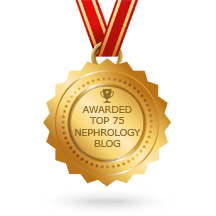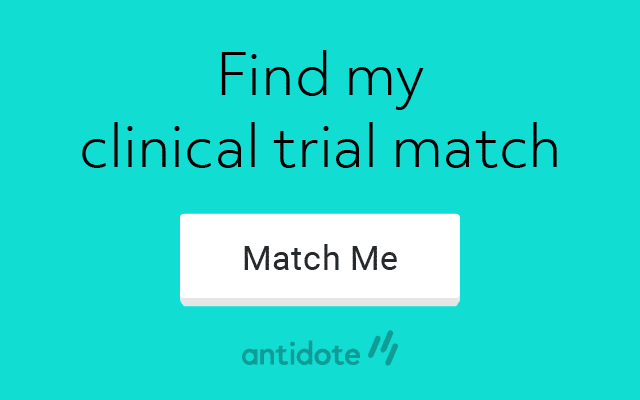 Several years ago, I was invited to a kidney disease meeting. That’s where I first met Kevin Fowler, Principal of The Voice of the Patient, Inc. I liked listening to his ideas. Later, we walked into each other at an AAKP conference. This time I thoroughly enjoyed his company, but had quite a few questions about pre-emptive transplants. Kevin was good enough to explain his story, which answers my questions, in this guest blog during National Kidney Month. Take it away, Kevin!
Several years ago, I was invited to a kidney disease meeting. That’s where I first met Kevin Fowler, Principal of The Voice of the Patient, Inc. I liked listening to his ideas. Later, we walked into each other at an AAKP conference. This time I thoroughly enjoyed his company, but had quite a few questions about pre-emptive transplants. Kevin was good enough to explain his story, which answers my questions, in this guest blog during National Kidney Month. Take it away, Kevin!
Kidney disease has always been a part of my life. When I was growing up, my mom told me stories about her father who had suffered from Autosomal Polycystic Kidney Disease ( ADPKD), a disease which prompts the growth of cysts on the kidneys. My mom was the oldest of three sisters, and had great love and affection for my grandfather, Hubert Duvall. I never had a chance to meet him because he died before I was born. It was the late 1950s when he was admitted to the hospital because he was not feeling well. Unknown to him, he was experiencing uremia, the inability of the kidneys to rid themselves of waste products such as urea, as he went into kidney failure. Shortly after his hospital admission he died. As he neared death, he learned that ADPKD was the cause of his kidney failure.
My grandfather’s patient journey had a profound impact upon his three daughters: Mary Ann, Ruth, and Laverne in that his genetic disease was passed on to each of them. My mom, Mary Ann, was diagnosed after the birth of her third child. Imagine the joy of giving birth to a child while being diagnosed with a disease with limited scientific knowledge and a very uncertain future. My mom and dad faced the unknown with a positive attitude, but with very little professional guidance.
As a young boy, I was very close to my mom. I felt her unconditional love for me, and her whole life was dedicated to her three children. As her ADPKD advanced, I saw her suffer with the disease. I saw her experience constant back pain, routine exhaustion and nausea. All of this physical suffering was difficult to understand as a young child. Moreover, what was really difficult was the look on her face as she faced a nebulous future.
Eventually, my mom’s kidneys failed. Unlike my grandfather, hemodialysis was available as a treatment option to sustain her life. She started hemodialysis at the age of 48. While she approached dialysis with optimism, her future was never clear to her or our family. I saw my mom struggle to survive on dialysis. I saw her return home from dialysis feeling exhausted and tired. I saw that when she had a rough hemodialysis session, it would take her longer to recover from the treatment. She never bemoaned her fate, and provided us the legacy of her example.
After four and a half years on hemodialysis, my mom died at the age of 52. Her dialysis experience left an indelible impression upon me. From that point on, I lived in fear that I would  face the same fate. I choose to never determine if I had the same disease. In many ways, it was a rational decision. Interventions were not able to slow down the progression of ADPKD. If I were diagnosed with ADPKD, I would be penalized. I would face difficulty obtaining health and life insurance. The fear of facing the same patient journey as my mom was always hanging over my head, and I didn’t have the courage to determine if I too had ADPKD.
face the same fate. I choose to never determine if I had the same disease. In many ways, it was a rational decision. Interventions were not able to slow down the progression of ADPKD. If I were diagnosed with ADPKD, I would be penalized. I would face difficulty obtaining health and life insurance. The fear of facing the same patient journey as my mom was always hanging over my head, and I didn’t have the courage to determine if I too had ADPKD.
I was married to my wife, Kathy, in 1995, and in less than five years we had two children. During this time, I was being seen by a primary care physician who was aware of my ADPKD family history. My kidney function was tested on my annual appointments, and he told me that my kidney function was fine. He stated that if I had ADPKD, there was not much that could be done to slow down the progression. Later that same year near the Christmas season, I experienced deep flank (the side of your body between the bottom rib and the hip) pain. Initially, I attributed it to moving some furniture. The pain persisted, and because of my additional responsibilities as a husband and father, I called my primary care physician requesting an ultrasound test. The ultrasound test would determine once and for all whether I too had ADPKD.
On a cold and sunny day in January 2001, my physician administered the ultrasound test. Watching his reaction told me all I needed to know. At the age of 39, I was informed that I would be in kidney failure within the next three to five years. He offered to make a nephrology referral, but I declined. Since he had not demonstrated competence managing my condition, I intuitively sensed that I could not trust his referral would serve my best interests.
 At that time, I was working in the pharmaceutical industry, so I called a physician friend at Barnes Hospital in St. Louis seeking a nephrology recommendation. On my mother’s birthday, I met with my nephrologist – who had a profound impact on my life. He informed me that it was not necessary to be on dialysis, and that I could have a preemptive kidney transplant. Because of my fear, I had never taken the time to learn about the different End Stage Kidney Disease treatment options. I was incredibly fortunate to receive the best treatment option.
At that time, I was working in the pharmaceutical industry, so I called a physician friend at Barnes Hospital in St. Louis seeking a nephrology recommendation. On my mother’s birthday, I met with my nephrologist – who had a profound impact on my life. He informed me that it was not necessary to be on dialysis, and that I could have a preemptive kidney transplant. Because of my fear, I had never taken the time to learn about the different End Stage Kidney Disease treatment options. I was incredibly fortunate to receive the best treatment option.
On this recently past World Kidney Day, the theme was prevention due to detection. In the United States approximately 90% of those with Stage 3 Chronic Kidney Disease are unaware of their condition. This is no longer acceptable. The American Kidney Health Executive Order has initiated a public campaign to detect kidney disease earlier. In fact, the National Kidney Foundation and CVS Kidney Care launched their public awareness campaign this month, National Kidney Month. Unlike when I was diagnosed, there are now approved treatments to slow down the progression of kidney diseases. There are potentially additional treatments in the pipeline for ADPKD, Diabetic Kidney Disease, FSGS, IGAN, etc. For many people there is no longer a need to live in fear. There is a very real possibility that their patient journey may change for the better.

Thank you, Kevin, for sharing your personal kidney journey with us. Kevin may be reached via email at kevinjohnfowler@gmail.com or on Twitter as @gratefull080504.
Until next week,
Keep living your life!



Leave a comment